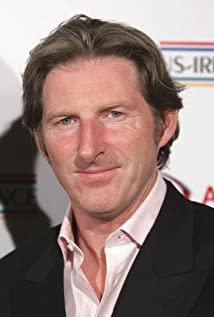Summary: In the process of seizing the throne, Richard III spared no effort to become a ruthless murderer. However, it is a protagonist wrapped in such a ruthless plot, a character who violates the mainstream morality and ethics, but has been active on the stage of the drama, and countless excellent actors still play him tirelessly and reproduce his past on the stage. brilliance. Faced with such a phenomenon, this article attempts to explore the attraction of Richard III, a negative character like Richard III, from the character of Richard created by Shakespeare, aside from the literary character of the drama and the compactness of plot weaving. Where does the force come from?
Key words: human nature creation forward-looking empathy multifaceted childhood trauma
Shakespeare wrote "Richard III" in 1591, describing the short reign of the tyrant Richard III. The author takes Richard as the main point of view, describing his ambition to achieve his own ambitions, showing that he is ruthless in order to achieve his goals. successfully ascend to the throne. In the process of seizing the throne, Richard III, by all means, gradually turned into a ruthless murderer. However, it is a protagonist wrapped in such a ruthless plot, a character who violates the mainstream morality and ethics, but has been active on the stage of the drama, and countless excellent actors still play him tirelessly and reproduce his past on the stage. brilliance. Faced with such a phenomenon, this article attempts to explore the attraction of Richard III, a villain, to people from the character of Richard created by Shakespeare, aside from the literary character of the drama, the compactness of plot weaving and other aspects. Where does the force come from?
In the long promenade of drama, the protagonists of many works have flawless merits, they are moral benchmarks, life guides, and social models. However, such characters are always criticized for being too fake, and the characters are too flat. People are multi-faceted, and no one is always sublime, they can only show one side. In Jung's "The Persona", it is mentioned that "there is a phenomenon in the unconscious mode of personality, the shadow phenomenon. This is the most hidden and mysterious part of the mind." During our childhood growth, we are affected by the environment Cultivating the side that is most suitable for social survival is like wearing a mask to live, hiding the potentially invisible side of yourself in your heart. Richard, a villain, allows readers to release the side of our hearts hidden in Richard's life trajectory, and in the change of his fate trajectory, feel another kind of unrealizable in our real life. life, thus forming a kind of spiritual sustenance in the depression.
Characters with purely moral benchmarks cannot adapt to the audience's habit of appreciation, and on the other hand, the audience is rebellious towards imposed preaching. But drama is propaganda to some extent, and Richard III is just the opposite. Shakespeare did not completely dehumanize such a cruel and ruthless character. On the other hand, it uses a strong front-to-back contrast to highlight the guilt that people have after doing evil, and this guilt actually comes from the traditional ethics and morality we have accepted. An ant feels guilty, but when we accept the Buddhist concept, we will have the idea that all living beings are equal. Richard III, after all, grew up in a Christian country, so he couldn't completely abandon this concept of morality and ethics in such immersion. "Pain". Shakespeare, under the strict plot, did not give up letting Richard III wake up from a nightmare when the two armies were at war to explain Richard's pain due to guilt.
Such an approach is more profoundly philosophical and educational than purely propaganda through positive characters. Because it reflects the emotions shared by human beings extremely truly, even the steely Richard could not let go of the fragile side of human nature, so that the audience can think of themselves when watching "Richard III", and thus think about their role in society. Position in the universe to achieve a more effective educational effect than empty outright propaganda.
According to this logic, Richard III is viewed beyond the real life level, but as an artistic image that can resonate with the audience. In a sense, Richard is an out-and-out tragic figure.
Tragedy, by definition, can have the effect of Cardassis on people because of the catastrophe it contains when it pulls apart our self-image in the world. Tragedy is the consequence of a man who goes all out to demand a fair evaluation of himself, and the destruction he suffers in doing so shows a flaw or evil in such an environment. Because man has the need to perfectly realize his own ideals. If the tragic figure just maintains a numb obedience in such a choice, turning a blind eye to the pressure imposed by the environment, or allowing the environment to engulf it, it will never be a tragedy. In Arthur Miller's classification of drama, such a drama can only be regarded as a tragic drama, because the protagonist only gets a tragic ending, which is like a disaster, and we can't feel anything but fear in it. We can't think of the life experience of the tragic characters from our own life, we can't think about the relationship between the individual and the world, and people can't get enlightenment from the tragedy, and we can't reap the tragic effect of pity and fear.
If Richard is defined in this way, he is no longer a villain who does many evils, but a tragic hero with a strong self-awareness and a great spirit of tragic struggle. Although his behavior is contrary to traditional morality and ethics, it also determines his tragic fate.
From the perspective of dramatic aesthetics, the key point that works of art and artistic characters can move and attract people is that what the audience appreciates on the stage is not creatures that are far from our lives, or even have nothing in common, because the audience will no longer We want to sit in a dark theater to observe his fate. We are keen to find people or things that have something in common with ourselves, or are related to our personal life experience. It is also about recollecting and feeling some kind of emotional memory engraved into the soul that exists within oneself. Imagine if Richard III was a character who had no emotion, and even made people doubt whether there was a human side, whether we could give him a certain amount of empathy, and whether the audience could sit in a chair and appreciate such a character the behavior done. We seldom identify with such a character, even if what he does is a latent shadow of our humanity. Therefore, the audience's empathy for the characters has become extremely important. Shakespeare's most superb treatment is to use Richard III's autobiography at the beginning of the play to let the audience quickly enter Richard III's inner world, because such a preemptive treatment , the audience begins to understand what the characters are going to do next. What Richard III does is not beyond common sense, not irrational. Instead, give the audience a very heavy thought: When I was in a situation like Richard's, would I do the same thing as him.
In "Richard III", before Richard was reprimanded by his mother, his behavior was so consistent that it is even difficult to imagine whether Richard's soul was shaken when he committed those crimes . And Shakespeare arranged a scene in which his mother reprimanded Richard very ingeniously. And the words cursed by his mother are not at all like a mother and son with a blood relationship, but an enemy with a deep blood feud. Through the dialogue of his mother and Richard III's self-report in the play, we can see that Richard's childhood was very unhappy. His deformed appearance and his mother who did not love him made him urinate since he was a child. Growing up in an environment of discrimination and extreme lack of love must have caused psychological trauma in Charlie's heart. Shakespeare's treatment not only makes the characters' motives more natural, but also makes the audience suddenly feel a certain sympathy for Richard. In the audience's mind, he is no longer just a tragic hero, but a more flesh-and-blood common man who seems to exist around us. people. When this characteristic extends to everyone and our real life, ordinary people can best understand this fear of fate. Trauma from childhood abuse, such as violence or emotional alienation, can distort the victim's personality, according to Judith Herman's Trauma and Recovery. Therefore, to a certain extent, the reasons for Richard III's evil deeds may also be inseparable from his upbringing environment.
Finally, for a character like Richard, if we want to think about the reason why he still exists in our field of vision today, we may find the answer in Nietzsche or in the philosophy of existentialism, Nietzsche preached that "God is dead" concept, requiring a re-evaluation of the concept of man, so he proposed the concept of superhuman philosophy. In his view, Superman is a brand-new morality developed against tradition and fashion, which reflects the will of life that people should most embody, and is a strong person in life. Sartre's existentialism is defined as an ethics of action and responsibility.
Richard, a rebellious drama character, just fits the definitions of these two philosophies. Nietzsche believes that superhumans should face the most unbearable pain and great hope in the world, which is reflected in Richard's tragic childhood. And in the great pursuit of power and desire, like a superman, he does not succumb to the weakness of human nature, but yearns for greatness and tries to become a perfect human being. In existentialism, when Charlie was finally defeated, when he was extremely depressed, he did not think about repenting of his sins, but instead thought about exchanging his kingdom for a horse. Such a person also happens to be in line with the notion of taking responsibility for oneself advocated by existentialism.
Shakespeare 500 years ago would not have imagined that his work would overlap with the philosophers 500 years later, and his characters in some way fit the profile of the most philosophically complete man. But Shakespeare's foresight as a playwright may be one of the reasons why his works are so enduring and his characters are still alive today.
Richard in Shakespeare's "Richard III" is in line with the diversity of characters in the drama, allowing the audience to feel the complexity of human nature, and making the character Richard gain emotional recognition beyond the general villain in the hearts of the audience. In today's philosophy and discourse system, you can still feel his charisma, because no matter how the times change, human nature will always exist in the long development of human destiny. This may be Richard's personality. The most charming place for the characters.
references:
1.【中】The Tragedy in Transcendence——On the Tragedy in Richard III by Yang Xiaolian
2. [America] Arthur Miller on Drama Arthur Miller
3. [中] "Research on the Artistic Value of Villains in Drama Performance" Wang Dayong
4. [German] "Thus spake Zarathusla" by Nietzsche
5. [Law] "Existence and Nothingness" by Sartre
6. [America] Trauma and Recovery by Judith Herman
7. [Ancient Greece] "Poetics" Aristotle
View more about Richard III reviews











